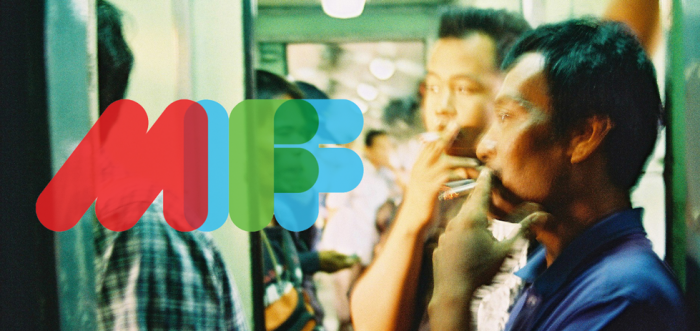Melbourne International Film Festival starts this week and our contributors are here to give you their picks for what looks to be the best of the fest.
Jeremy Elphick: When we talk about great directors, or more specifically their groundbreaking films, it’s so often framed in retrospect. It’s always exciting to find an exception to the rule, to watch a filmmaker release what feels clearly like their strongest work to date. Angela Schanelec, one of the most conceptual, cerebral, and minimal filmmakers to come out of the already characteristically stripped-back Berlin School, has spent the last two decades as one of Germany’s more divisive yet simultaneously lauded filmmakers. The Dreamed Path spans three decades, tugging on time and space, producing a stunning portrait of pain, impermanence and detachment with a sense of control few directors can lay claim to.
Closer to home, Thai filmmaker Sompot Chidgasornpongse’s feature-length debut Railway Sleepers (pictured above) shares a preference for a distant, contemplative approach to cinema. It is a documentary on the railways of Thailand, though it’s easy to forget this documentary-element — Sompot’s approach is far from orthodox (and all the better as a result). A long-time assistant and collaborator of Apichatpong Weerasethakul, Sompot’s first directorial effort has been almost a decade in the making, with the director establishing himself as one of Thailand’s most exciting up-and-comers.
Conor Bateman: The sheer volume of films that play MIFF each year means that the likelihood of stumbling onto something great that you hadn’t at all heard of is pretty high. One of the films in the program that I have high hopes for in that vein is Machines, Rahul Jain’s factory-set ethnography study, which took out a Special Jury Prize for Cinematography at Sundance this year. Comparisons to the widely-feted Harvard Sensory Ethnography Lab seem to have followed the film through its festival run, which admittedly is what caught my eye, but it’s the potential for an attack on the form of the city symphony which will get me through the door.
Another documentary I’m interested in watching (perhaps cautiously interested is more appropriate) is the medium-length Death in the Terminal, which focuses on the aftermath of the shooting of a soldier in Southern Israel, told through camera phone footage and CCTV which paint conflicting pictures of the event. It’s a curious pairing of directors, too: Tali Shemesh, whose last documentary,The Cemetery Club, was also a reflection on horrific violence and tragedy, albeit in the form of a gently comic portrait of her grandmother and great aunt, and Asaf Sudri, a cinematographer best known for his work on Joseph Cedar’s war film Beaufort.
I’m also excited to finally catch Helena Girón and Samuel M. Delgado’s Burning mountains that spew flame, which screens as part of the always essential Experimental Shorts program. Phoebe Chen wrote up this short as part of our piece on an experimental film program in Queensland earlier this year: “These sequences play out like a secret life of rocks, camera drifting across the textural minutiae etched onto these formations by unwitnessed forces. In these tunnels, there are intimations of the illicit, the mysterious.”
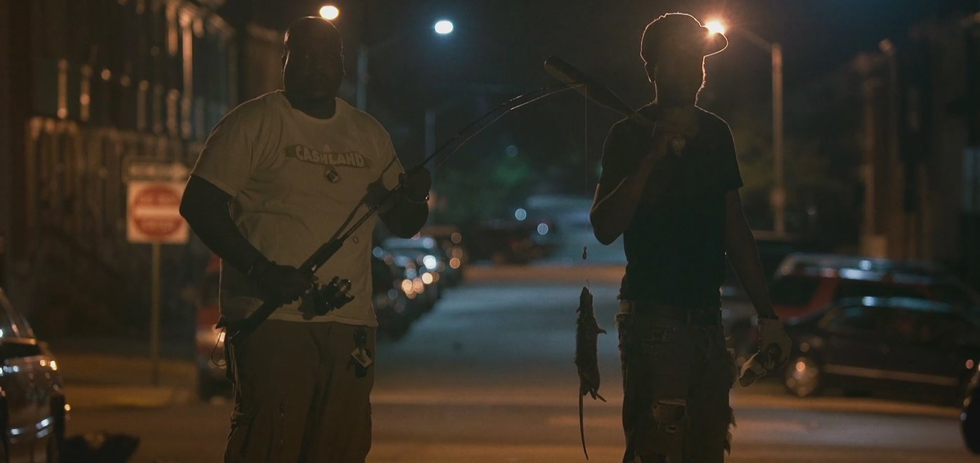
Jessica Ellicott: The cool films at MIFF always have an animal in the title. In 2015 it was Horse Money. In 2016 it was… OK, I’m solely basing this theory around Horse Money. Anyway, this year it is Rat Film. Theo Anthony’s essay film about the rats of Baltimore has been firmly on my radar ever since Charlie Lyne’s True/False festival write-up in Sight & Sound earlier this year. Rat Film uses rats as jumping-off point to engage in larger investigations of class division and racial segregation in the Maryland metropolis. A graduate of Werner Herzog’s Rogue Film School, Anthony’s style has been said to recall the eclecticism and humour of the late, great Chris Marker. Bold comparisons aside, I’m keen to see what all the fuss is about.
I disembarked a 24-hour flight shortly before the Cannes Director’s Fortnight premiere of Claire Denis’ Let the Sunshine In. In the dazed thirty minutes between picking up my press pass and the film starting, I walked past Elle Fanning on the street in a ball gown, Agnès Varda sat down a few seats away from me in the cinema, and Werner Herzog unexpectedly got up and welcomed Claire Denis and Juliette Binoche on stage. I will possibly never again encounter such a dizzying string of personal film legends in such a short time period, and so I was admittedly somewhat seduced into loving this film. But it’s bloody great. A sharp, subversive take on the romantic comedy genre from Claire Denis, it’s everything you never knew you needed until now. And it has the most radical closing credits I’ve seen in a long time.
Anders Furze: The great film about a program as overwhelming as MIFF’s is that by necessity you design your own festival within it. Virtually every conceivable type of cinema is represented somewhere in this program, and there’s something both inspiring and confounding in the idea that the festival will play host to thousands of different mini-programs, each informed by God knows how many different interacting forces.
Which brings me in a roundabout way to my personal 2017 MIFF program, which this year has a major queer focus. Top of my list is the investigative documentary The Death and Life of Marsha P. Johnson. Johnson was a New York City trans icon whose 1992 murder remains unsolved today, and the documentary follows modern day activist Victoria Cruz as she searches for answers. Beach Rats, Eliza Hittman’s well-received, seemingly dreamy drama about a teenager exploring his sexuality one summer in Brooklyn, is also high on my list. Following closely behind is The Ornithologist, Joao Pedro Rodrigues’ queering of the tale of St Anthony of Padua. It seems to follow in the fine tradition of MIFF films exploring the intersection of sexuality and spirituality (see Carmelo Bené Salome, which screened in 2015). Elsewhere: God’s Own Country explores a burgeoning gay romance between a Yorkshire sheep farmer and a Romanian seasonal worker.
Finally, Eastern Boys was one of my highlights of MIFF 2014, mostly for its extraordinary central party slash robbery scene, and director Robin Campillo returns this year with BPM (Beats Per Minute). The drama, which is set in 1990s France, centres on a group of AIDS activists. Promisingly, it appears to combine the political, the erotic and the cinematic: you can’t ask for much more from a movie.
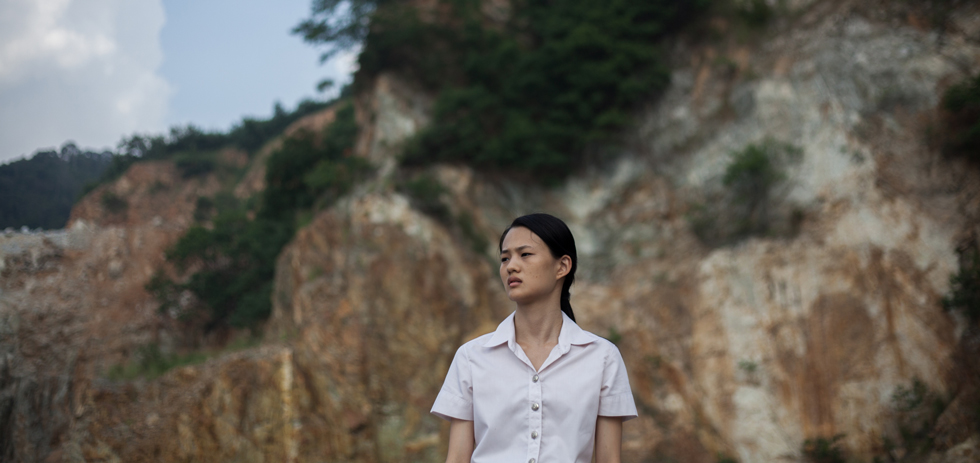
Jaymes Durante: One of the great benefits of being able to attend the Sydney Film Festival pre-MIFF is that I can cross off the big guns early, so my schedule isn’t leaden with too many high profile heavy-hitters destined for general release later in the year. While Terrence Malick’s wild and wanton romantic drama Song to Song, Josh and Benny Safdie’s propulsive NYC thriller Good Time and Michael Haneke’s icy social satire Happy End come with hearty recommendations, this year I’m more excited to dig into MIFF’s expansive treasure trove of concealed gems. At the top of my list is the Experimentations sidebar, namely Anocha Suwichakornpong’s By the Time It Gets Dark, which explores Thai history and personal memory through ellipses, free-association and formal distortion, and Rey, a multi-format surrealist feature about a French explorer claiming sovereignty over Patagonia, shot on celluloid which the director literally buried in his backyard.
Though many are averse to his languid sensibility, I greatly enjoyed Bertrand Bonello’s last two features, 2011’s listless and lascivious House of Pleasures and 2014’s Saint Laurent, which, while slight, embodied the exact brand of French cool the titular designer was famous for. Bonello’s latest, Nocturama, looks like a change of pace, a bifurcated terrorism thriller-cum-Godardian consumerist critique set in post-modern Paris, where a projection of ideal social representation meets late capitalism, fear and pleasure intermingling uneasily. Another look at French youth comes in Claire Simon’s verité doc The Graduation, which observes the admissions process at La Femis, France’s most prestigious film school. Superficially, it brings a touch of Frederick Wiseman to a program sorely missing him for the first time in a few years, but more importantly it looks to grapple with the idea of film schools and their usefulness in the modern media landscape, where they better serve as production farms for compliant capital-T talents ready for a career of gainful employment rather than incubators for genuinely talented visionaries.
In rat-adjacent filmmaking: Eliza Hitman’s Beach Rats, about sexuality in Brooklyn, and Theo Anthony’s Rat Film, about actual rats in Baltimore, are high on my list of priorities. A special shout-out to Agnes Varda, Fashion Icon and preeminent lover of beaches and cats, who after sixty-plus years of no holds barred innovation in fiction and documentary is back with what looks to be her most loose and playful feature yet, Faces Places, made in collaboration with artist JR.
Faith Everard: One particular filmmaker who has never failed to impress me is Yorgos Lanthimos, and I couldn’t be more excited for his latest flick: The Killing of a Sacred Deer, starring Nicole Kidman and Colin Farrell. It’s very loosely based on the Greek myth of Iphigenia, and promises to turn the ancient tragedy into a contemporary horror film. It opened to a very mixed reception at its world premiere at Cannes earlier this year — it was reportedly booed — but I’d still be willing to give it the benefit of the doubt. Lanthimos has built a career on creating an atmosphere of discomfort and absurdity in previous films such as Dogtooth and The Lobster; his films tend to resonate more with those who share his fascination with the darkness in ordinary people, and their struggle to build a meaningful identity.
On the opposite end of the tonal spectrum we have Patti Cake$, a feel-good hip-hop movie about a young woman (Australian newcomer Danielle Macdonald) trying to find her groove in the New Jersey rap scene. Not only does it have one of the best trailers in the whole festival, it was so adored at its premiere at Sundance that Macdonald received a standing ovation. Those who have seen Patti Cake$ are overwhelmingly united by a common love of its portrayal of working-class female empowerment, and I personally look forward to supplementing my viewing with something a little more innocent and light-hearted.
This year’s line-up includes some fantastic retrospectives, but my favourite of the bunch has to be the Pioneering Women program strand, co-curated by Alexandra Heller-Nicholas. All of the films were directed by women, many of whom are also Australian filmmakers. Bedevil — an anthology of horror stories — was the first feature film to be made in this country by an indigenous woman, Tracey Moffatt. As befits her background in photography, Moffatt’s film is visually sumptuous and bathed in gorgeous, bright colour. Then there is Celia, a Melbourne-based genre-defying tale that blends elements of horror into a portrait of childhood, complete with a healthy dose of communist paranoia and overactive imagination. Other highlights include Gillian Armstrong’s cheerfully wacky musical Starstruck, her beachside familial drama High Tide, and last-but-not-least, On Guard; a feminist lesbian IVF heist thriller made with mostly women behind the camera, too.
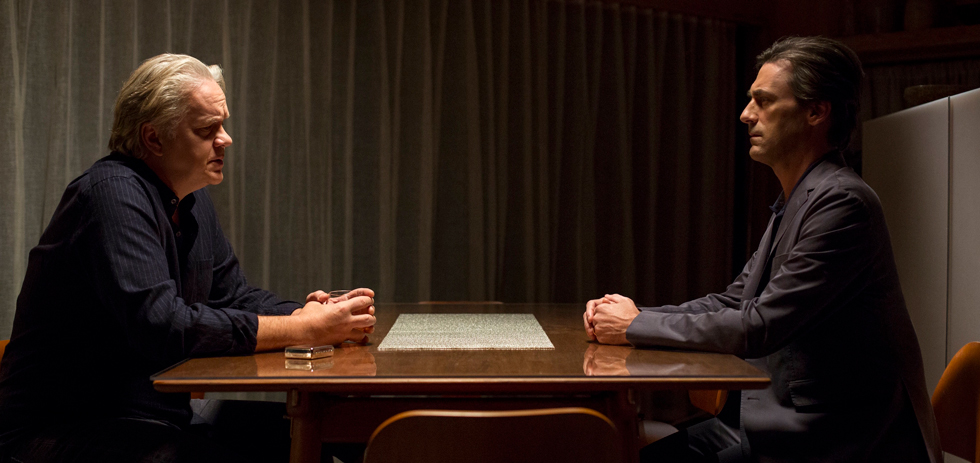
Keva York: Given the number of films screening at this year’s MIFF (357), and the diversity of those films, and the fact that I’m easily overwhelmed, the task of singling out just a few is a tricky one. Scanning the program has revealed some familiar names, however: I was particularly pleased to see Marjorie Prime, Michael Almereyda’s latest, on offer – there’s this offbeat, lethargic quality to his films (those I’ve seen, at least) that I think should be well-suited to this tale of family, memory, and Artificial Intelligence. Adapted from Jordan Harrison’s play of the same name, Marjorie Prime centers on an ageing matriarch hanging out with a virtual resurrection of her deceased husband. The lowkey sci-fi premise is a welcome counterpoint to the all-out dystopian visions featured in the (also very exciting) sci-fi retrospective. Plus, Jon Hamm as a hologram.
My Friend Dahmer also piqued my interest, although maybe not for the right reasons. Why do the lives of serial killers make such perversely fascinating source material for our entertainment? I don’t know, and I’m not sure I want to know, but I definitely do want to see Marc Meyers’ film about young Jeffrey Dahmer. That the troubled Dahmer is played by Disney alumnus Ross Lynch – whose previous credits include films with delightfully generic names like Teen Beach Movie (2013) and Teen Beach Movie 2 (2015) – only adds to the film’s perverse potential charm.
And now for something completely different: Yuri Ancarini’s The Challenge is billed as a documentary but it looks about as fantastical as anything on the program. It’s an art-travelogue, following a group of sheikhs as they journey through the desert to a falconry competition in Qatar. In this world of extreme luxury sports, falcons travel by private plane, cheetahs lounge in Lamborghinis, and men ride golden motorbikes. I can’t wait to sample the smorgasbord of bizarre and sumptuous images Ancarini has prepared.
Dominic Ellis: Did you know that there are sci-fi movies that don’t star Harrison Ford? Some of the best of them are on show as part of MIFF’s Sci-Fi Retrospective. It’s an impressive line-up, ranging from ’90s cult films to Czechoslovakian masterpieces, as well an all-night sci-fi marathon that is so slapdash in its selection that it might just be amazing. Far from the usual suspects of ‘significant sci-fi’, the retrospective has some of the most influential yet overlooked films made in the genre. Stand outs include the Soviet silent film Aelita, the lost treasure Nothing Lasts Forever and The 10th Victim, which has a ‘dystopic reality show’ conceit that predates The Hunger Games and Battle Royale by decades. It’s a candy store of quirky genre work – including Australian relics like Dead-End Drive In – and I couldn’t be more excited.
Speaking of local genre fare, Greg McLean, who made two of Australia’s strongest horror movies, Wolf Creek and its sequel, returns with the opening night film Jungle. Made with the support of the MIFF Premiere Fund and starring Daniel Radcliffe, Jungle is an exciting, high profile local work. McLean’s last film, The Belko Experiment (which also has its Australian premiere at MIFF – albeit quite belatedly) hasn’t received rave reviews but Jungle, based on the adventures of Israeli backpacker Yossi Ghinsberg, looks to be a simpler story, a ‘wilderness nightmare’ well suited to McLean’s style. Us Wolf Creek loyalists should be in for a treat.
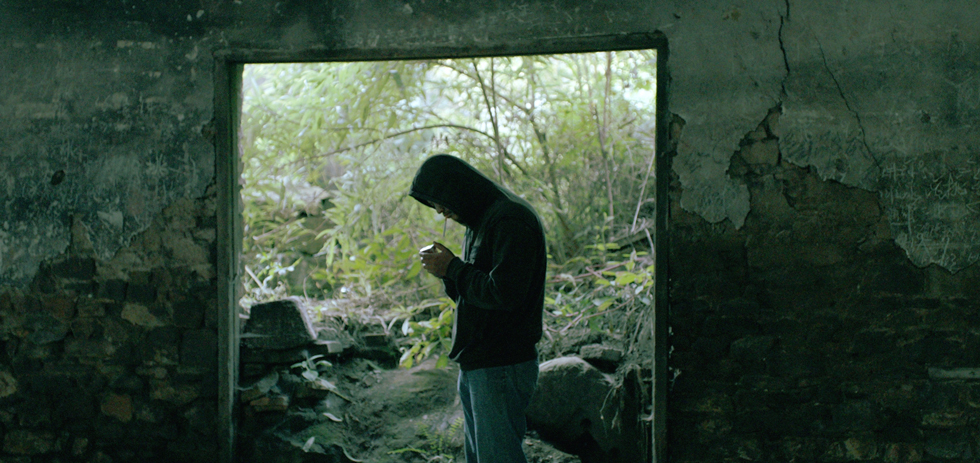
Virat Nehru: I was really excited to find Turkish filmmaker Reha Erdem’s latest Big Big World in the MIFF program. Through his work, he has brought the cultural specificity of folklore and fairytale narratives into the language of film (see Kosmos, MIFF 2010 for example). Shahrbanoo Sadat’s Wolf and Sheep (SFF 2017) also played with form by infusing bits of magical realism and folklore into the grammar of the film, and consequently, her film ended up as one of my highlights at this year’s Sydney Film Festival. If there is a thematic through-line that can be drawn at this year’s festival circuit across the board, it’s that there is an abundance of political stories being told through the medium of film. However, a film from this mould that broke away and caught my imagination was Steve James’ Abacus: Small Enough to Jail. A truly fascinating story of the only bank that was ever charged in the aftermath of the GFC in the United States, I saw it at 9:30 am on a Sunday morning, and despite my cranky mood that morning for having to sacrifice my Sunday beauty sleep, it won me over and how!
It has been great to see Chinese filmmakers like Jia Zhangke (Mountains May Depart, MIFF 2015) reaching wider audiences recently. They use the vast landscape and spatial topography of mainland China in highly innovative ways, both for the purposes of social commentary and to experiment with cinematic structure. In this tradition comes Yang Heng’s fourth feature Ghost in the Mountains that played at the Berlinale this year. It’s a surrealist crime drama set against the mountainous backdrop of rural Chinese society. And finally, the film I am most excited about this year is On the Beach at Night Alone. MIFF has three Hong Sang-soo films as part of the program this year, so as a viewer, you are definitely spoilt for choice. I wanted to single this one out because the autobiographical tone of this film is giving me serious Kagaz Ke Phool (dir. Guru Dutt, 1959) vibes, which is one of my all-time favourite films. All the buzz around it — that it is apparently inspired by Sang-soo’s extramarital affair with actress Kim Min-hee — and the fact that Min-hee won the Silver Bear at this year’s Berlinale for her performance, is enough to get me hyped.
JD Caruso: Another year… another round of films… As always, it’s tempting to recommend that one stays at home, kicks up their feet, and busts out their old copy of Disturbia, a film never topped by any title ever screened at MIFF, however I’m in a giving mood, so here’s a couple of titles I’ll be checking out that obviously pale in comparison to that Beoufian masterpiece but are probably somewhat watchable efforts nonetheless. Two films tackling gender disparity in contemporary Japan despite operating in highly different modes, Daigo Matsui’s feminist pulp-piece Japanese Girls Never Die and Kyoko Miyake’s Tokyo Idol, a documentary delving into the lives of idols and their fans, are of particular interest — two vastly different approaches to probing the increasingly transparent sexualisation of youthful female bodies and the clash between traditional Japanese cultural values and contemporary social practice.1
Two other films of note at the festival are Benson and Moorhead’s self-referential indie-sci-fi opus The Endless and Helene Hegemann’s fantastic adaptation of her own autobiographical novel Axolotl Overkill, which both take somewhat abstract approaches to temporality and chronology in narratives which (coincidentally) explore the long-term effects of a fraught and unconventional youth, from almost diametrically opposed perspectives. Any opportunity to catch Good Time or My Happy Family should also be not be wasted, while 78/52 should be avoided at all costs. Finally, it’s hard to look past Charli XCX’s new music video for Boys, which will be screening on repeat on my phone screen.
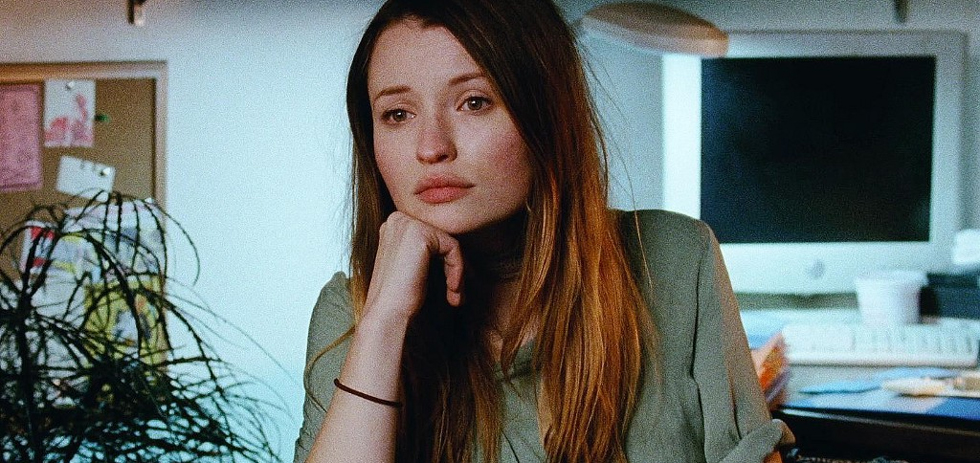
Tope Ogundare: Two MIFFs ago I was left irked and unimpressed by Alex Ross Perry’s Polanski-lite thriller Queen of Earth, having only recently leapt aboard the Perry train on account of his superb preceding efforts The Color Wheel and Listen Up Philip (MIFF 2014). I nonetheless remain seduced by the New Yorker’s utter dedication to depicting the inevitable misanthropy of disillusioned humanists and wounded narcissists from whose mouths hyperliterate barbs and caustic honesty practically prolapse. For this reason, Golden Exits has my full attention, only deepened by the involvement of Aussie Emily Browning whose vanity-free turn in Julia Leigh’s Sleeping Beauty (SFF 2011) left me convinced of her potential for perverse greatness. Throw in the lucid, earthy, 16mm wizardry of in-demand cinematographer Sean Price Williams and I am once again willing to attempt sipping from Perry’s sour yet sincere cup.
Going from ego-stroking in New York City to pleasure-seeking in mainland China, I pick Jia Zhangke’s The Hedonists, a 26-minute short whose presence on my most-anticipated list may stem entirely from its premise being pretty reminiscent of my favourite Zhangke picture The World (MIFF 2005). Like that film, The Hedonists is a workplace dramedy set in an offbeat theme park, but the root of my excitement lies in the prospect of being treated to Zhang-ke’s deft hand with expansive yet lowkey ensembles, and his ability to interweave individual characters’ narratives and broader social commentary within crisp, colourfully composed frames that flirt with the surreal. Zhang-ke’s way with staging and pacing are simply sui generis and a half hour of it should prove a tiny but welcome jolt of brilliance amidst the festival chaos. And while not as pint-sized, at 84 minutes Jindřich Polák’s 1963 Czechoslovakian sci-fi trailblazer Ikarie XB-1 is a notably compact work I have long desired to see for its apparent influence on subsequent touchstones like Kubrick’s 2001 and Tarkovsky’s Solaris, but mainly because few things in life satisfy me as thoroughly as patiently observed speculative science fiction. And I should add that the swaggering trailer for the recent 4K restoration of the film does well to dispel any creeping suspicions that it is merely an impoverished though historically significant Soviet-era oddity.
Lidiya Josifova: Colossal was my first glimpse of Spanish director Nacho Vigalondo’s penchant for subverting genre tropes. Though not always consistent in tone or character development, his was a refreshing take on the kaiju film tradition. With that in mind, I was pleasantly surprised to see a film already recommended on several occasions, Timecrimes, included in MIFF’s sci-fi retrospective this year. A low-budget sci-fi thriller, with an intricate plot focused around temporal loops and a protagonist pitted against malevolent versions of himself, the film is a chance to delve into Vigalondo’s filmography and trace the evolution of his fascination with turning genre films on their heads.
Rounding out my doppelgänger double feature is Hong Sang-Soo’s Yourself and Yours. Protagonist Youngsoo’s girlfriend Minjung disappears after they have an argument about her breaking his trust, only for multiple versions of her to pop up around town, claiming not to know the mutual friends who approach her. What’s appealing is Hong’s ostensibly low-key use of his surrealist central plot device, taking it only as far as is necessary to explore his characters’ underlying concerns. There’s seemingly no point hypothesising about the internal logic of these multiple versions suddenly materialising, and I’ll be more than happy to shift my attention elsewhere within the frame.
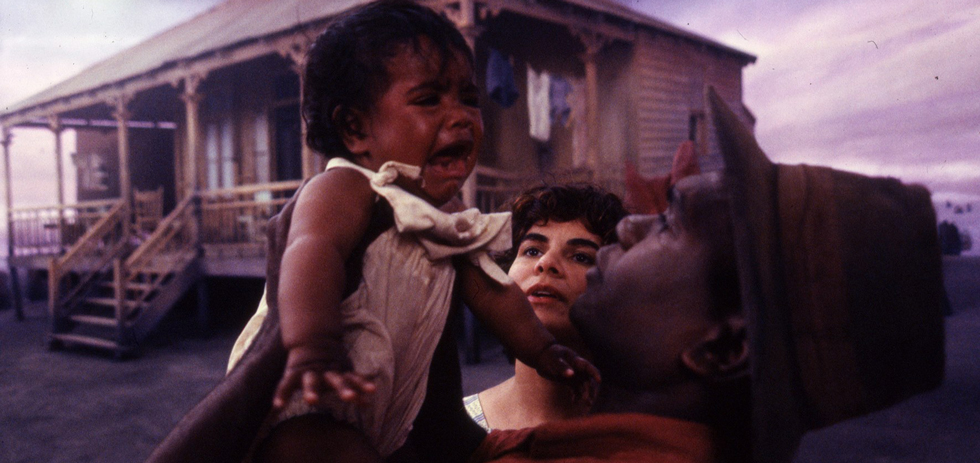
Blythe Worthy: This year I’m excited for the ways in which MIFF is striving to really set itself apart from tired film festival ruts and be forward looking. For the past few years there has been a conscious effort to include a diverse range of unrecognised or under-celebrated voices (as seen last year with the Gaining Ground series) and 2017 is no exception. The Pioneering Women retrospective curated by AFI research fellow Alexandra Heller-Nicholas looks to be excellent, serving (amongst its packed collection) über-creepy 1989 child horror Celia by Ann Turner and spooky outback Tracey Moffatt realness with Bedevil (1993).
Jane Campion’s newest offering, season two of Top of the Lake is having a day-long Aussie premiere in full on the first weekend of August, with a Q&A to close out the session. This is an incredible coup for MIFF as Campion is coming as a guest too, fresh off a wave of adoration in Cannes. The series is designed to be watched in a single viewing and I’m undeniably ready to be emotionally and atmospherically pummelled by it come MIFF. I truly hope more marathon festival screenings are in the future for this kind of television format.
Agnès Varda’s new documentary (though it has a terrible English-language release name) Faces Places looks to be as wonderful as the film icon’s earlier works on the French countryside folk-as-national-portrait type of films like The Gleaners and I. Though she hasn’t made a film in over ten years, Valeska Grisebach’s Western and its rethinking of genre formats is the most enticing for someone like me, who obsessively watched all of John Ford’s films in a daze during a midwest holiday earlier this year. Grisebach’s debut Longing (MIFF 2005) was an absolute hammer to the senses and really delved into the metaphysical side of love, so seeing what she can do with masc tensions on the Bulgaria-Greece border is top of my list.
You can purchase tickets for MIFF over at their website.
